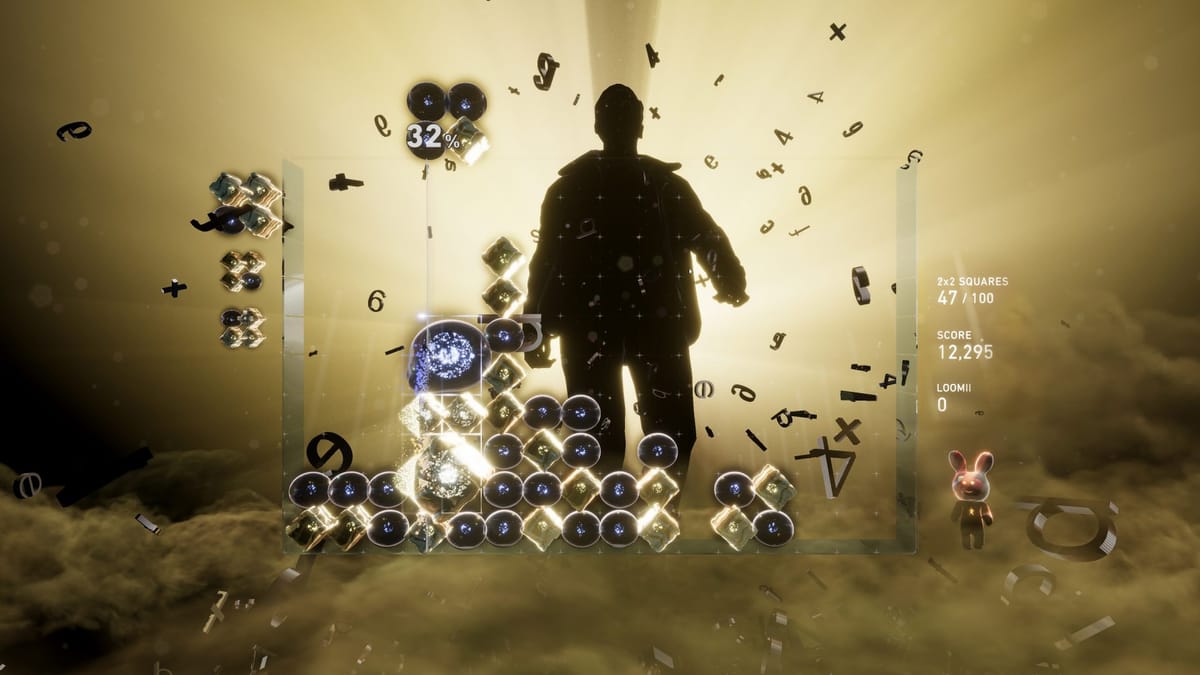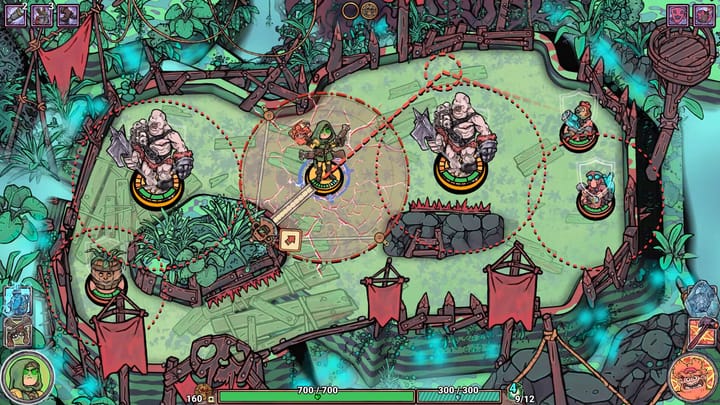It happens to all of us; every now and again, a game releases that in no time at all, finds itself neatly slotted into a specific category of games. A category whose name/title/identifier may vary from person to person, but whose common factor can be surmised by the following introductory passage: "I vividly remember the first time I played..."
I vividly remember the first time I played Tetris Effect, way back in 2018 at the time of its original release on PS4. At the time, I had just about liberated myself (and my short-term memory) from the dire, turgid and ocassionally-baffling saga that was reviewing The Quiet Man – by far one of that year's worst releases and a game that, despite attempts to properly calibrate one's expectations, I was still astounded by, for all the wrong reasons. Do yourself a favour and do not look up that name, forewarning.
What was needed was a palette-cleanser – ideally, one of more positive and commendable traits. Something, anything, to alleviate the one and thankfully only (though a few later bad spells would come close) time I found it necessary to rate a game a measly 1/5. Yes, one-out-of-five.
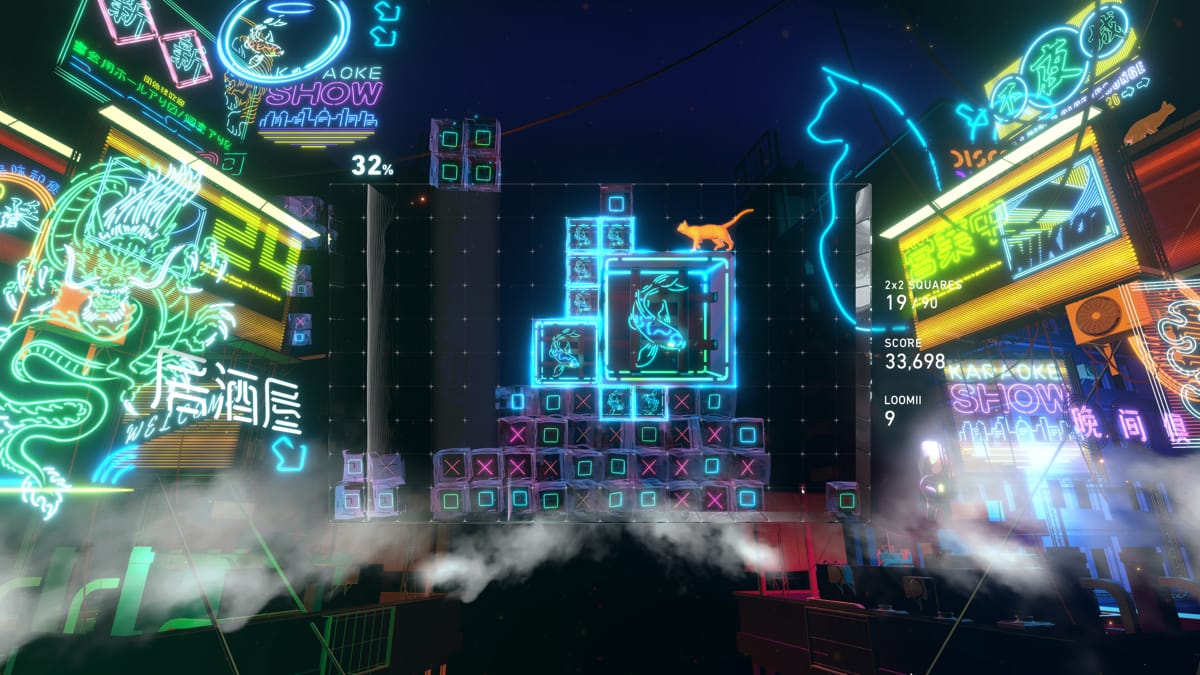
Enter Tetris Effect, developer Monstar's (in conjunction with Enhance) colorful, energetic and surprisingly-moving take on one of gaming's oldest and legacy-attaining IP's. Led by industry veteran Tetsuya Miziguchi, I went in with a frankly limited expectation on what this iteration on Tetris could bring. Limited not in intrigue or curiosity, but in simply one's pondering on just what exactly you could do with Tetris' formula to make it any grander or absorbing than its solid, decades-old gameplay has already proven time after time.
It's coming up to the game's seventh anniversary this November. Having transported its kaleidoscopic-like splendor of falling blocks, particle effects and interspersing reactive sounds, to even more platforms – a "Connected" expansion arriving in 2020, adding additional multiplayer modes on top – you'd think the allure would've, if not dissipated, then at the very least waned. Yet it hasn't; it's 2025 and even now, Tetris Effect remains still one of the most absorbing and unexpectedly wondrous ideas put into execution I've ever experienced.
Still I can break apart its many positives as inherent pluses in their own right. Its individual stages whose contextual sounds I can still hear; its additional challenge modes that apply inventive twists to objectives. And of course, lest we forget: its soundtrack, composed by Hydelic – still as memorable and easy to revisit as it was day one. Personal highlights: "Connected (Yours Forever)", "Joy", "You and I", "All Nations", "So They Say", "Always Been But Never Dreamed" – rarely a week or a month that's passed where I haven't revisited at least one of these tracks for the umpteenth repeat listen at some random point in the day.
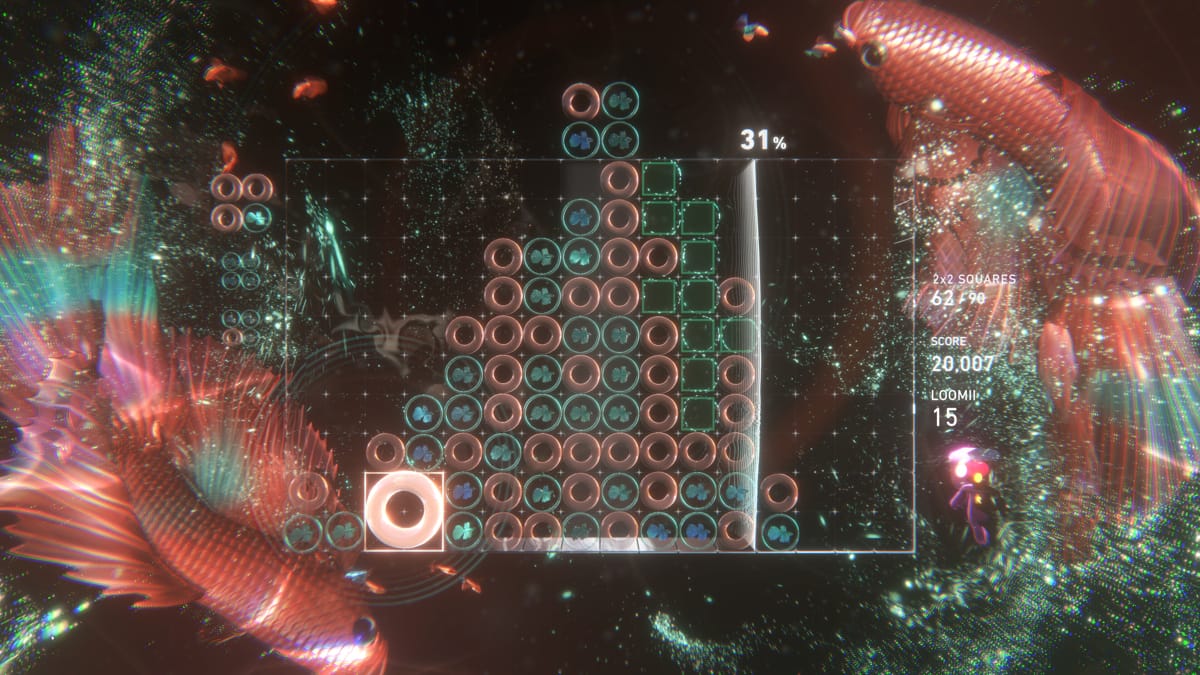
Yes, Tetris Effect's impact can not go understated. Nor should it be so easily cast aside when talking about Lumines Arise. In hindsight, the logical next-step in what you do with the hypothetical of Effect's "spiritual successor". But at the time, upon reveal, a game that still sparked plenty of that similar/familiar curious mystery and child-like giddiness at the sight of Lumines gameplay, but with all this extra vividness and all that [probable] responding to its audible stimuli.
Consider me one of the undoubtedly many, eager to see how Mizuguchi and company would apply their syneasthesia-like spectacle, to something else. A project that while not entirely new, was intriguing nonetheless. To potentially wow and dazzle in very much the same way Tetris Effect so brilliantly sucker-punched many, through its presentation and granular progression. Even if, personal concession here, Lumines as a series has always been something I admire and respect at a distance, more so than one I would chose, over yet another round of Tetris.
Having sampled Lumines Arise's recent demo – three single-player stages and a helping of competitive rounds online – those preferences haven't changed. What has changed is my anticipation for how effective Arise may prove. An equal to its Tetris brethren's shock declaration all those years ago? Well, truth be hold, making many a repeat trek down its three-stage, single-player sampling as I have done, my feelings coming out of Lumines Arise are admittedly a tad soured. Soured not just in the sense of how well Lumines gameplay looks to be a sound fit for this kind of visual spectacle. But more worryingly, whether Enhance/Monstars are approaching Arise even as that theoretical "step-up" to aim for, rather than simply a complimentary addition to what Tetris Effect has already proven.
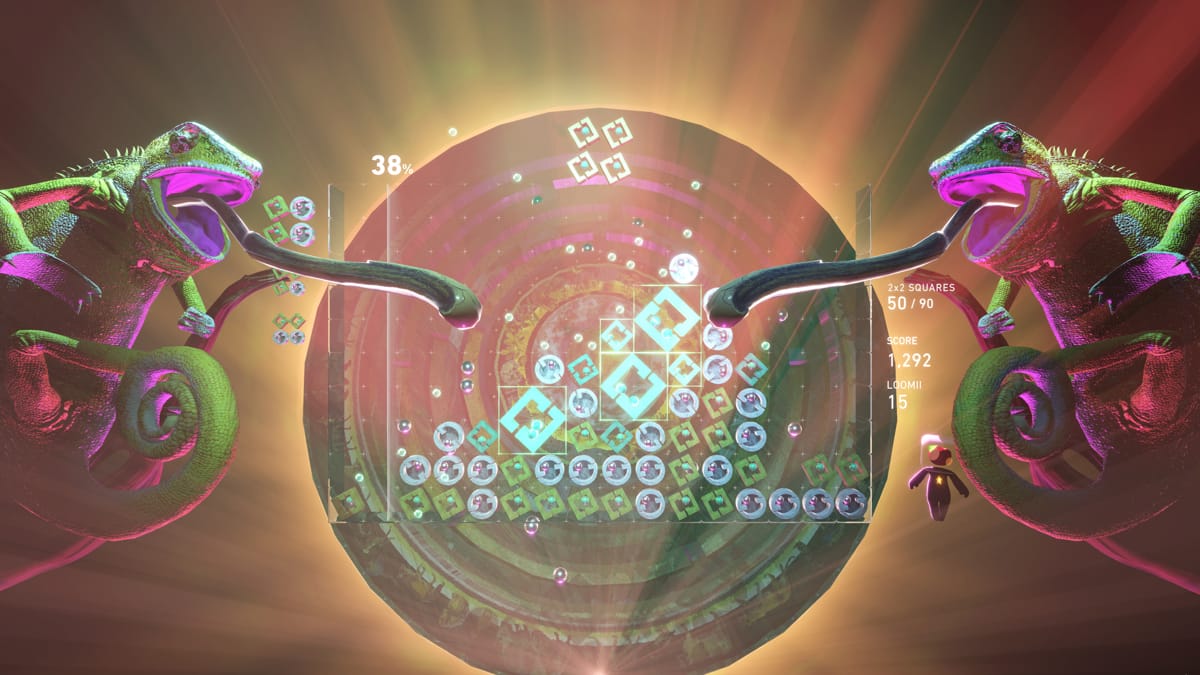
To put it this way: Lumines Arise at a glance feels more like it's imitating, rather than forwarding, Effect's prior ethos. Aiming (hoping perhaps) those same emergent high's and shockingly-emotional beats are hit, without clearly targeting what it was about Tetris Effect that grabbed people so. You needn't look further than Arise's first stage. At a glance, a fairly low-key but sensible slow-burn of an introduction whose visual indulgence is low but potential crescendos, as it transitions between phases, are well-meaning. Look a little closer however – the somewhat washed-out, far-from-easy to read color choice and even the musica; number's fairly anticlimactic stuck-in-neutral dynamism – and you can't help shake the feeling that something is a little off.
An unfortunate false start, one hopes. And as it turns out, most likely the case; Arise's fellow stages thereafter doing a better job at revisiting the Effect well. Even if, slight gripes budging their way to the front here, there's a similarly lacking visual punch to signal such a change. Gone are Tetris Effect's ticking-down jettisoning from one board to another; in its place, a mere fade-down/fade-back-up serving as your only sign that the scenario has changed. But nonetheless a better-suited use of sound – the compositing of ambiance and instrumentation in the music drawing you into that familiar zone wherein the world around just seems to stop existing. The closing stage of the three on offer, the uncontested highlight. Another thumping, head-bobbing, showstopper of a track that, if nothing else, makes you sit up and take notice.
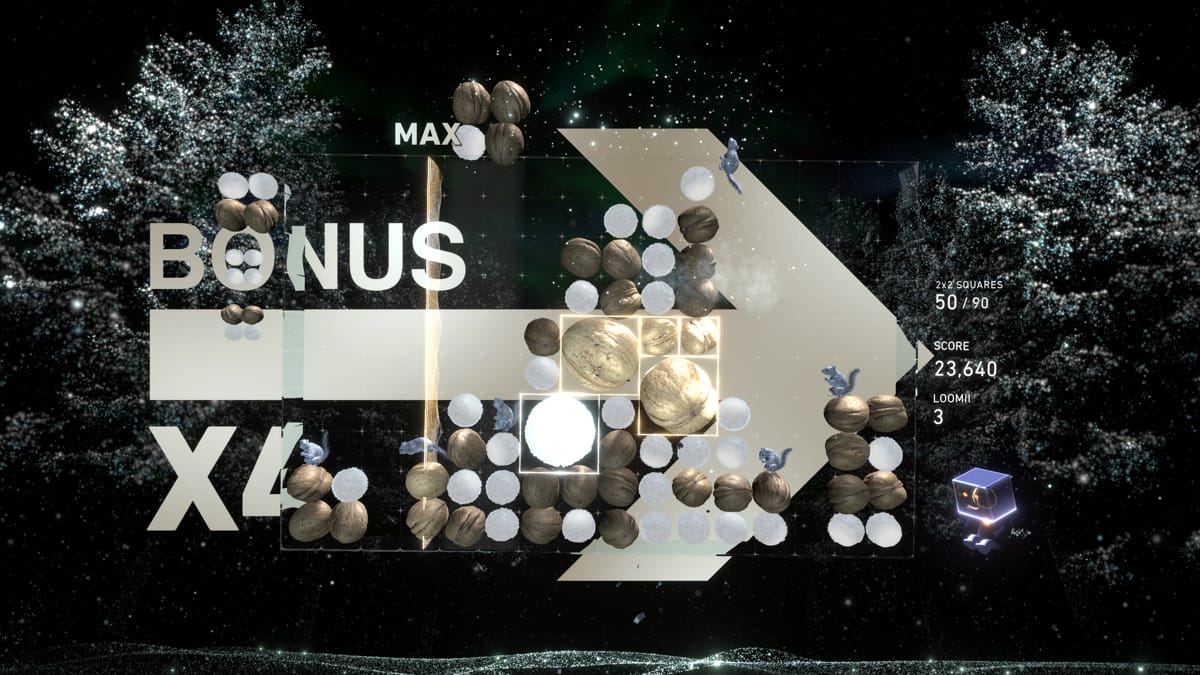
Taken as but a litany of delightful, emergent moments, Lumines Arise certainly lives up to most of that lofty expectation. Eagerly wanting to repeat the three-stage demo just to reach that concluding finale and hear that track once more, is personal proof of that. But even these innocent, emergent instances can't shake off the feeling that something feels not quite in sync. The necessity to play Lumines by its own rules, feeling slightly at odds with the eventual blooming of sounds and sights that Tetris Effect was so good at.
Unlike Tetris, that can be played to one's own pace, rhythm and micro-managed strategy, Lumines has a much stricter, tighter and narrower direction in play. Construct as large an assembly of squares and watch as the slider wipes your work clean. Gone are the varied Tetrimino shapes; in its place, 2x2 pieces wherein the hope that you're given an ideal piece, feels far more affront than it ever did with Tetris. And in one's humble opinion, I'm not exactly convinced the Effect-like aesthetic hits as hard. Especially when the requirement to rack up a combo higher than a measly two or three, feels a tad more out-of-reach than it should.
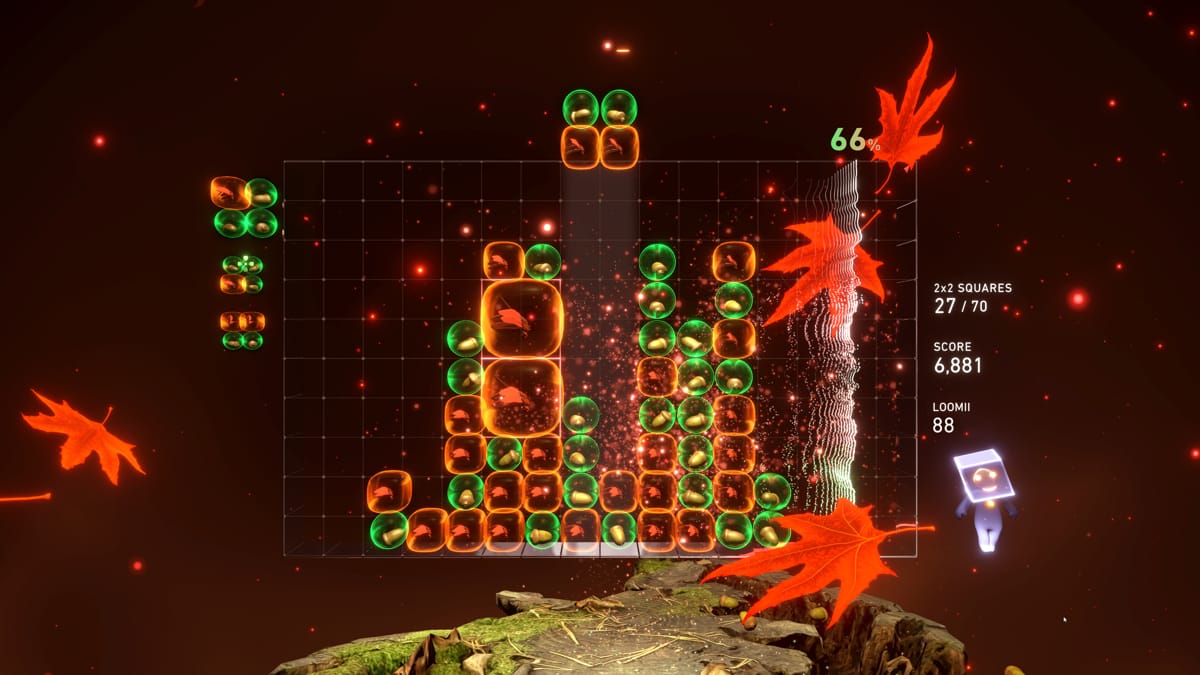
That's not to say it doesn't herald any impact at all; as already stated, it has its moments. Indeed, if this is just the start of the game's Journey Mode equivalent, consider it a moderately strong opener to what must be an even more daring and alluring spell of levels thereafter. Further to that, via this game's equivalent of the Zone mechanic from Tetris Effect – dubbed the Burst mode – activating this skill provides that familiar pause in proceedings. Time to either maximize potential or simply re-calibrate and avoid an early exit. That weirdly-intoxicating thrill of having all the time in the world, yet paradoxically none at all as the panic still finds a way to seep in.
So it's on that note that even with these slight grievances with minor aesthetic touches and the far-from-fluid application of Lumines' core identity, one's optimism with Lumines Arise remains largely untarnished. Enhance still knows how to provide that unusual marriage of anxiety and euphoria. The tension of a grid marred by troublesome blocks, complimented by the delight at syncing one's moves with a musical groove. Something that in another light might seem conflicted, but here is anything but. If this can indeed persist through to Journey [Mode]'s end, even a technically "lesser-surprising" iteration with Lumines Arise, may well prove immersive enough to replicate that same wow-factor of seven years ago. Lumines Arise releases for PS5 & PC on November 11.


